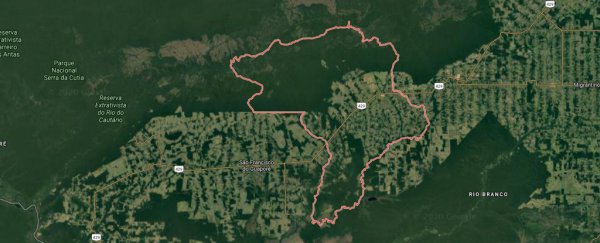A leading expert on indigenous peoples in Brazil was shot dead with an arrow apparently fired by a member of an isolated tribe in the Amazon rainforest, officials and a journalist in the region said Thursday.
Rieli Franciscato, 56, the head of a program to protect indigenous groups that have little or no contact with the outside world, died Wednesday in the Seringueiras region, a remote municipality in the northern state of Rondonia, said a statement from the Brazilian government's indigenous affairs office, FUNAI, where he worked.
FUNAI declined to say how he died.
But witnesses said he was shot with an arrow while monitoring recent appearances by a tribe known as the "Cautario River isolated group," according to a photojournalist in the region, Gabriel Uchida.
Rieli was accompanied by a police patrol. When the party came under fire with arrows, they ran to take shelter behind a vehicle, but Rieli was hit in the chest, witnesses said.
He was taken to the nearest hospital, but died soon after.
The tribe "are known as a peaceful group," Uchida told AFP in an email.
"The last time they appeared in the region was in June… It was a larger group, very peaceful. They even left presents at someone's house," he said.
"This time, there were just five armed men - a war party. That means something must have happened to make them seek 'revenge'."
Such groups have sometimes lashed out violently when illegal miners or poachers encroach on their land.
Uchida said there were some reports of such activity in the region.
Isolated tribes' first contacts with the outside world have often been disastrous in the past, marred by deadly violence, devastating outbreaks of disease, and the breakdown of their social structures.
Rieli led an operation at FUNAI called the Uru Eu Wau Wau Ethno-Environmental Protection Front, whose mission was to protect isolated groups.
The Brazilian Amazon is home to at least 100 isolated tribes, more than anywhere else in the world, according to indigenous rights group Survival International.
"Rieli dedicated his life to the indigenous cause. He had more than three decades of service, and leaves an immense legacy for the protection of these peoples," said FUNAI official Ricardo Lopes Dias.
